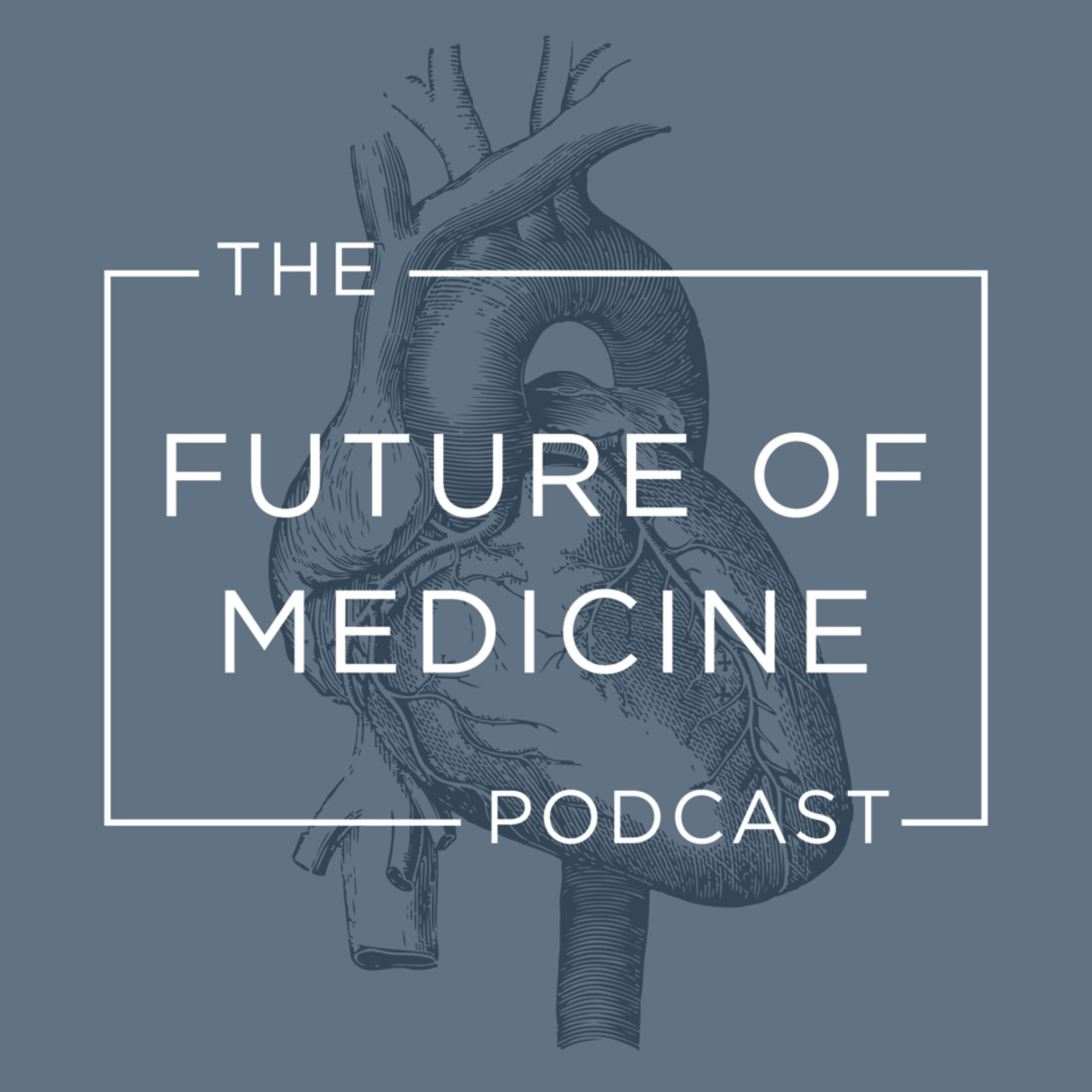Show Notes
DID YOU KNOW THAT YOUR BODY ONLY HAS ONE MECHANISM TO LOWER BLOOD SUGAR OTHER THAN EXERCISE?
Insulin.
But what happens when that one mechanism that you have begins to fail?
In today’s blog, we are going to unpack the concept of insulin resistance. I believe it is one of the most important and critical topics in all of medicine for the next 20 years.
TO BE DIABETIC IS TO BE INSULIN RESISTANT.
Most people think you just wake up one day with diabetes. This is just not the case.
Diabetes is actually a continuum, or spectrum. This means that you become diabetic over the course of five, ten, or fifteen years.
The spectrum begins with mild insulin resistance that progresses to a blood sugar of 126, or seven teaspoons of sugar in your bloodstream – just two teaspoons of sugar above a non-diabetic.
In order to do understand insulin resistance, we first need to answer some critical questions.
WHAT IS BLOOD SUGAR?
Blood sugar is a mechanism by which we deliver fuel or energy to our body so that we achieve the primary goal of all living things, which is to stay alive.
Blood sugar is energy.
WHY IS SUGAR SUCH A BIG DEAL?
Because sugar is the simplest, most readily available, form of energy that our body uses to keep us alive, which is our body’s primary goal.
Once our blood sugar hits a level of 100, or 5 teaspoons of sugar, the body begins to store the rest as fuel for later. This is for 2 reasons: a blood sugar of 7 teaspoons = diabetes and we need a mechanism to survive famines. So, in efforts to not to waste any of the sugar while not giving you diabetes in the process, the body pushes it all excess sugar into fat.
SUGAR IS CONVERTED INTO FAT THROUGH ONE STEP.
One intermediate step is all it takes to take sugar and drive it into a fat cell. This is hugely important.
So how does insulin resistance occur?
In order to answer that, we need to understand normal first. In other words, what does our body normally do by design in the presence of elevated blood sugar? When your blood sugar rises above 100, a signal is immediately sent to your pancreas to release the hormone insulin.
Insulin does two things – it lowers blood sugar by driving it into the cells, and it coverts sugar to fat.
So as blood sugar normalizes, insulin goes away completely and you have this relationship in a normal scenario where…
SUGAR RISES, INSULIN RISES, SUGAR FALLS, THEN INSULIN FALLS.
This is normal.
Over time, as blood sugar remains elevated even in the presence of insulin, the body release even more insulin to correct the high blood sugar, and then your blood sugar drops. But our body starts resisting insulin which results in a chronically elevated blood sugar.
THE MORE INSULIN RESISTANT YOU BECOME, THE HIGHER YOUR BLOOD SUGAR AND INSULIN LEVELS BECOME.
The basic premise of insulin resistance.
But why is this a big deal?
Insulin resistance is a chronic progressive disease, which means, if left alone, it not only doesn’t go away, it gets worse. And eventually, our blood sugar becomes so elevated that we diagnosed with diabetes.
This is how tightly our body controls blood sugar. It’s super important to be alive but we want no extra because we don’t want diabetes.
TO BE DIABETIC IS TO BE INSULIN RESISTANT.
You are just profoundly insulin resistant with diabetes as opposed to mildly insulin resistance with pre-diabetes.
An out of control diabetic is also insulin resistance, they’re just out of control. They have the inability to respond to any level of insulin that their body is able to produce.
And what happens to those people when they go the physician? What does your doctor put you on when your pancreas is working overtime and you can’t produce enough insulin to get that sugar down because your body is ignoring it?
You guessed it – MORE INSULIN.
THE ANSWER IS ALWAYS MORE INSULIN.
Elevated insulin is a big deal because it does a number of horrific things.
1. High levels of insulin make you fat.
Insulin is a fat making hormone.
At high levels, it blocks you from ever being able to burn fat. You’ve got to normalize your blood sugar and if your body’s ignoring the only mechanism to get that blood sugar down, you’re going to be in trouble.
2. High levels of insulin also cause cravings.
Insulin triggers the craving center in your brain. Think about it – if insulin is related to blood sugar, what do you think insulin makes you crave? Sugary foods. Carbohydrates.
This is why people with diabetes are always hungry.
3. High levels of insulin raise your bad cholesterol and your triglycerides.
The American College of Cardiology proposes that having diabetes is a risk equivalent to having established heart disease.
Insulin stimulates your liver to overproduce bad cholesterol, suppresses your good cholesterol, and increases your triglycerides.
This is a heart attack waiting to happen.
4. High levels of insulin increase total body inflammation.
Why does total body inflammation matter? Because inflammation is at the root of every disease known to man kind – arthritis, chronic pain, acid reflux, Alzheimer’s, dementia, stroke, and cancer.
The inflammatory process that takes place in the presence of elevated insulin is severe. When you’re in a state of constantly elevated insulin, you are chronically inflamed. Allergies, rashes, joint pains, it just never ends.
HOW DO YOU KNOW IF YOU HAVE INSULIN RESISTANCE?
There are some early signs to look for.
1. A slow rise in blood pressure.
This is often due to the pro inflammatory state. We start seeing rises and blood pressure top number, the systolic above 135. There may be no other symptom but this rise in blood pressure is suspicious and it’s one of the earliest signs that we see.
2. Increased belly girth.
Insulin deposits fat along the waistline.
Increased belly circumference is directly correlated to all cause mortality.
3. A change in cholesterol numbers.
Typically we see bad cholesterol or LDL go up, along with triglycerides. We also see good cholesterol or HDL go down. These are all very suspicious of early insulin resistance.
4. Increased fasting blood sugar
This is a later finding.
Fasting blood sugars begin to rise from 85 to 90, 90 to 95, 98, 105, 109. Yet you’re still being told “Oh, don’t worry. You’re not diabetic.” Yeah, but 126 is diabetes!
This is a huge disconnect.
IF YOU’VE BEEN TOLD THAT YOU’RE BORDERLINE DIABETIC, YOU ARE DEFINITELY INSULIN RESISTANT.
Some other warning signs that your insulin resistant is progressing are chronic fatigue, an increase in cholesterol levels that require statins, low thyroid levels, and low free testosterone levels (male and female).
HERE ARE SOME CONVERSATIONS TO HAVE WITH YOUR PHYSICIAN AROUND INSULIN RESISTANCE.
1) Am I insulin resistant?
The first step to answering this question is to find a physician who knows what this means and how to diagnose it. Finding a physician who understands is everything.
Generally speaking, your physician needs to test you for those early indicators we talked about – cholesterol, blood pressure, and obesity.
– Have them check your total cholesterol panel to see if your bad cholesterol is elevated and your good cholesterol is low.
– Have them check your blood pressure to see if it is starting to rise — usually 135/80 or greater.
– Have them look for truncal obesity. In other words, you’re getting heavy around the belly.
These are all very, very tell-tale signs that insulin resistances is at play.
2) If I am insulin resistant, how do I treat it?
There are really only a few ways to treat insulin resistance.
Diet – First and foremost, you need to make radical diet changes to avoid elevated blood sugar, and elevated insulin.
Changing your diet helps by minimizing or eliminating the things that raise your blood sugar and gives your body a chance to recover the mechanism God gave you that your body has been ignoring.
You’ve got to fix your diet first.
Exercise – The best way to lower your blood sugar is to not eat things that raise your blood sugar. But presupposing you find a way to consume something that raises your blood sugar, you’ve only got two ways to lower blood sugar – insulin and exercise.
Using your muscles to exercise consumes and burns free sugar and increases insulin sensitivity by reversing insulin resistance.
Remember, exercise should be implemented using the five phases of fitness that I discuss in our episode about exercise.
Metformin – If diet and exercise aren’t enough, you may need medication. The drug of choice to treat insulin resistance is Metformin.
Metformin works by increasing your body’s insulin sensitivity.
It is safe, and does not cause low blood sugar episodes. It may cause some GI upset in the first week or two of treatment, but that usually subsides.
It can be prescribed for anyone unless they have an allergy to it, or kidney disease.
I wouldn’t start with Metformin but if diet and exercise are not yielding the outcomes that you want, adding medication may help.
3) I’m diabetic and on insulin – should I also be on Metformin?
You may be asking this question if you’re curious whether you’re really attacking the root of diabetes, which is insulin resistance.
Metformin is a critical component the diabetes medication regimen. If you are diabetic on insulin, you need to be on Metformin as well, unless you’ve got kidney disease.
If you’re on insulin, which your body is already ignoring, you’re giving your body way more than it needs. By simply adding Metformin, you will be able to reduce the amount of insulin that you’re exposing your body to; therefore, curbing the negative effects of that hyper-insulin state.
Listen, I hope you can see how passionate I am about this topic.
It’s a really big deal.
I hope you enjoyed this post on insulin resistance. If you don’t know if you’re insulin resistant, talk to your doctor about getting the recommended tests for it. And if you are insulin resistant, know that it can be reversed before it develops into diabetes.
Please leave me your me your comments, questions, and let me know if there are other topics you would like me to discuss in future posts.
If you prefer video content, please be sure to subscribe to our YouTube channel. You can also listen to our podcast The Concierge Medicine Show on iTunes.
Take care —
Aaron Wenzel, MD



